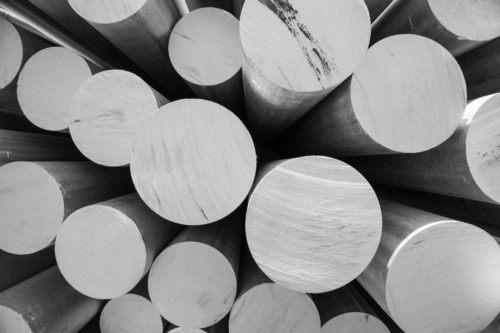Stahl Specialty Company Fundamentals Explained
Stahl Specialty Company Fundamentals Explained
Blog Article
The Main Principles Of Stahl Specialty Company
Table of ContentsA Biased View of Stahl Specialty CompanyStahl Specialty Company for BeginnersStahl Specialty Company Can Be Fun For AnyoneFacts About Stahl Specialty Company RevealedOur Stahl Specialty Company Ideas
The refined distinction exists in the chemical content. Chemical Contrast of Cast Aluminum Alloys Silicon advertises castability by minimizing the alloy's melting temperature level and boosting fluidness throughout spreading. It plays an important role in allowing detailed molds to be filled accurately. In addition, silicon adds to the alloy's toughness and wear resistance, making it useful in applications where resilience is vital, such as auto components and engine parts.It also boosts the machinability of the alloy, making it less complicated to process into completed items. In this method, iron adds to the overall workability of light weight aluminum alloys. Copper boosts electric conductivity, making it helpful in electrical applications. It likewise improves rust resistance and contributes to the alloy's general toughness.
Manganese adds to the stamina of light weight aluminum alloys and improves workability. It is commonly used in wrought aluminum items like sheets, extrusions, and profiles. The presence of manganese aids in the alloy's formability and resistance to cracking during construction procedures. Magnesium is a lightweight element that provides strength and impact resistance to light weight aluminum alloys.
It enables the manufacturing of light-weight components with outstanding mechanical residential or commercial properties. Zinc enhances the castability of aluminum alloys and assists control the solidification process throughout casting. It enhances the alloy's toughness and hardness. It is often found in applications where detailed shapes and great information are necessary, such as ornamental castings and specific automotive components.
6 Easy Facts About Stahl Specialty Company Described
Due to the fact that aluminum-silicon alloys have good casting residential properties, high gas residential or commercial properties, straightforward procedures, and excellent deterioration resistance, aluminum-silicon alloys are most typically used in the die-casting market in your home and abroad. At the very same time, aluminum-silicon alloys are also reasonably early and widely recognized alloys established and used in die-casting. After continual research and enhancement, the majority of the current worldwide mainstream aluminum-silicon alloys have been settled and are absolutely nothing greater than A356, A360, A380, ADC12, B390, and A413.
The main thermal conductivity, tensile toughness, yield stamina, and elongation vary. Select suitable raw materials according to the performance of the target product produced. Amongst the above alloys, A356 has the greatest thermal conductivity, and A380 and ADC12 have the least expensive. The tensile restriction is the opposite. A360 has the very best return stamina and the greatest elongation price.

The Stahl Specialty Company Diaries
In accuracy casting, 6063 is appropriate for applications where intricate geometries and top quality surface area coatings are paramount. Examples include telecommunication units, where the alloy's remarkable formability permits sleek and cosmetically pleasing layouts while preserving structural stability. visit their website In the Lights Solutions market, precision-cast 6063 elements create elegant and efficient lighting fixtures that call for elaborate shapes and great thermal efficiency.
(https://www.avitop.com/cs/members/stahlspecialc.aspx)
It causes a finer surface finish and much better rust resistance in A360. Additionally, the A360 shows premium prolongation, making it suitable for complicated and thin-walled parts. In accuracy casting applications, A360 is well-suited for sectors such as Consumer Electronic Devices, Telecommunication, and Power Devices. aluminum metal casting. Its enhanced fluidity permits detailed, high-precision parts like smartphone casings and communication device housings.

In precision casting, aluminum 413 radiates in the Consumer Electronic Devices and Power Equipment industries. It's generally utilized to craft detailed parts like smart device housings, electronic camera bodies, and power tool housings. Its accuracy is amazing, with tight resistances as much as 0.01 mm, ensuring flawless item assembly. This alloy's superior rust resistance makes it an outstanding option for outside applications, making certain long-lasting, resilient products in the discussed markets.
The 10-Minute Rule for Stahl Specialty Company
When you have actually determined that the light weight aluminum die casting process appropriates for your project, a crucial following step is choosing one of the most proper alloy. The aluminum alloy you select will substantially impact both the casting process and the properties of the last product. Since of this, you have to make your decision carefully and take an enlightened strategy.
Figuring out the most suitable aluminum alloy for your application will mean considering a broad selection of features. The first category addresses alloy qualities that affect the production process.
The alloy you choose for die casting straight impacts several facets of the spreading process, like exactly how simple the alloy is to deal with and if it is vulnerable to casting defects. Hot fracturing, also understood as solidification fracturing, is a typical die spreading problem for aluminum alloys that can result in internal or surface-level splits or fractures.
Some Known Details About Stahl Specialty Company
Specific aluminum alloys are much more vulnerable to hot cracking than others, and your selection should consider this. Another common defect found in the die casting of light weight aluminum is pass away soldering, which is when the actors adheres to the die wall surfaces and makes ejection hard. It can harm both the cast and the die, so you should search for alloys with high anti-soldering residential properties.
Corrosion resistance, which is already a remarkable feature of aluminum, can vary substantially from alloy to alloy and is an important characteristic to take into consideration depending upon the ecological conditions your product will be revealed to. Use resistance is one more residential property typically sought in light weight aluminum products and can distinguish some alloys.
Report this page